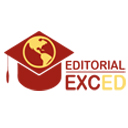Proposal for the development of investigative skills through the use of digital tools: Mendeley and Obsidian
DOI:
https://doi.org/10.58594/rtest.v4i2.113Abstract
In today's digital age, access to information and the ability to conduct research effectively are essential skills for lifelong success. Although these are usually addressed formally in the context of higher education, they are not always promoted in a systematic and didactic manner with an approach aimed at solving social problems, either due to ignorance or rejection of the transformation of traditional practices. Given this concern, this work aims to present an innovative educational proposal, aimed at developing research skills in higher education students through the integration of two digital tools in the teaching-learning process: Mendeley and Obsidian. This proposal seeks to strengthen the research training that students receive throughout their educational career, promoting a practical and applied approach to these skills. Furthermore, it is based on the premise that the use of digital tools not only facilitates and enriches the research process, but also prepares students holistically for a constantly evolving world increasingly oriented towards digitalization, contributing to the development of more competent and committed individuals in addressing global social problems.
Downloads
References
Elsevier. (2023). Mendeley. https://www.mendeley.com/?interaction_required=true
Instituto Tecnológico y de Estudios Superiores de Monterrey. (2023). Aprendizaje a lo largo de la vida. eduTrends. Institute for the Future of Education. https://repositorio.tec.mx/handle/11285/650927
Machado Ramírez, E. F., Montes de Oca Recio, N., & Mena Campos, A. (2008). El desarrollo de habilidades investigativas como objetivo educativo en las condiciones de la universalización de la educación superior. Pedagogía Universitaria, 13(1), 156-180.
Moreno Bayardo, M. G. (2005). Potenciar la educación. Un currículum transversal de formación para la investigación. REICE - Revista Electrónica Iberoamericana Sobre Calidad, Eficacia y Cambio En Educación, 3(1), 520–540.
Organización de Estados Iberoamericanos. (2022). Informe diagnóstico sobre la educación superior y la ciencia post COVID-19 en Iberoamérica. Perspectivas y desafíos de futuro. https://oei.int/oficinas/secretaria-general/publicaciones/informe-diagnostico-sobre-la-educacion-superior-y-la-ciencia-post-covid-19-en-iberoamerica-perspectivas-y-desafios-de-futuro-2022
Organización de las Naciones Unidas para la Educación, la Ciencia y la Cultura. (2020). La educación en un mundo tras la COVID: Nueve ideas para la acción pública. www.unesco.org/open-access/terms-use-ccbysa-sp.
Organización de las Naciones Unidas para la Educación, la Ciencia y la Cultura. (2022). Reimaginar Juntos Nuestros Futuros. Un nuevo contrato social para la educación. https://www.unesco.org/open-access/terms-use-ccbysa-sp
Pérez, C., & López, L. (1999). Las habilidades e invariantes investigativas en la formación del profesorado. Una propuesta metodológica para su estudio. Pedagogía Universitaria, 4(2), 13-44.
Published
How to Cite
Issue
Section
License
Copyright (c) 2024 Erick Arbeu-Reyes, Alma Delia Torquemada-González, María de Lourdes Orozco-Ramírez

This work is licensed under a Creative Commons Attribution-NonCommercial 4.0 International License.
The authors retain the copyright, granting the Journal the right to first publication of the work. The authors assign the journal the rights to exploit the work, authorizing its distribution and public communication for non-commercial purposes. The authors retain the moral rights to the published work. The economic rights belong to the Journal.












